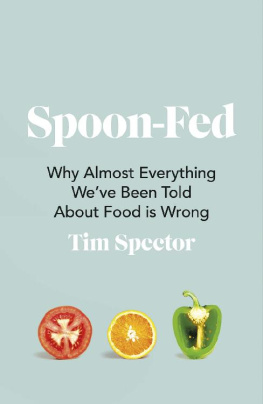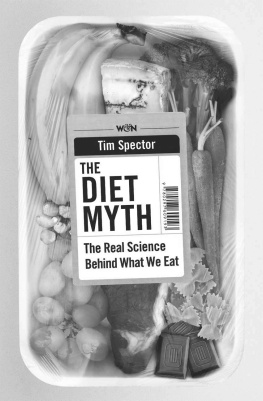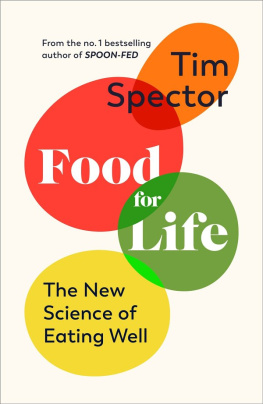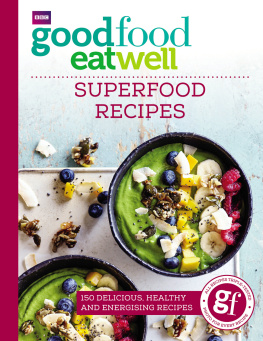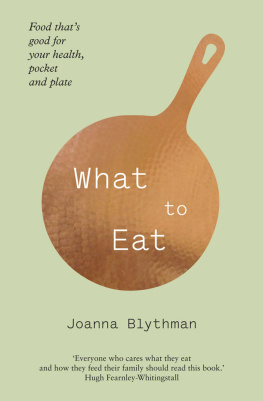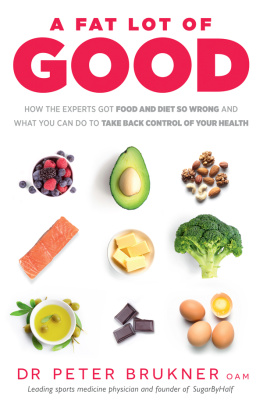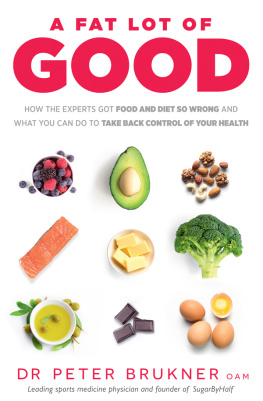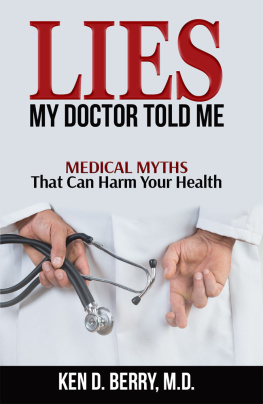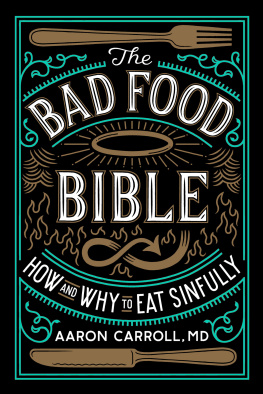
Tim Spector
SPOON-FED
Why Almost Everything Weve Been Told About Food is Wrong

CONTENTS
ABOUT THE AUTHOR
Tim Spector is a professor of genetic epidemiology at Kings College London and honorary consultant physician at Guys and St Thomas Hospitals. He is a multi-award-winning expert in personalised medicine and the gut microbiome, and the author of four books, including the bestselling The Diet Myth. He appears regularly on TV and radio around the world, and has written for the Guardian, BMJ, and many other publications.
BY THE SAME AUTHOR
Identically Different
The Diet Myth
To Juno
INTRODUCTION
Most of us learn our first food myths as children. When I was young, I was told that some special foods would make me grow quickly (milk and cereal), make me brainy (fish), give me acne (chocolate), or give me big muscles (meat and eggs). I was encouraged to eat spinach because of Popeye, but never told anything about the benefits of lentils, broccoli or beans, and I was told nuts were unhealthy snacks because of the cholesterol. I was also told I would be ill without a proper breakfast. My mother, brought up in the war years, told me virtually no food was too mouldy to eat, and leaving food on your plate was unacceptable. I dont recall having any proper meals that didnt involve meat or fish. Vitamins were seen as very important, especially vitamin C, which was taken as supplements or drunk as orange juice. Other unquestioned advice included never swimming within an hour of eating, never eating just before bedtime and the importance of exercising to lose weight. Not one of these ideas is backed up by science, and many of them turn out to be categorically wrong, but they were repeated so often that I still find them hard to unlearn as an adult. We all inherit similar notions, and opinions about food whether well-intentioned or not only multiply as we get older.
Eat less fat. Eat less sugar. Eat your five-a-day. Eat more starchy vegetables, never skip meals, eat little and often, drink at least eight glasses of water a day, drink less caffeine, drink less alcohol, eat less meat and dairy, eat more fish, use vegetable oils not butter, count your calories and switch to diet drinks. We have become used to being told how, when and what we should be eating. These messages come from many different sources: national guidelines, the media, advertising and even food labels and cereal packets, as well as posters and leaflets in hospitals and doctors surgeries. With all this advice, we should surely all be healthier, slimmer and free of diet-related illnesses. Instead, since 1980, rates of obesity, food allergies and diabetes in most countries have rocketed, along with unexplained rises in dementia. Despite advances in treatment, rates of heart disease and cancer are on the rise, and the recent increase in longevity has flattened off and is showing signs of decline. Faced with a myriad of food choices and a tidal wave of misinformation, many of us want a simple quick-fix solution. Even the most cynical can find themselves absorbing unfounded advice with simplistic messages. We too readily fall for the claims of lifestyles such as clean-eating, vegan, ketogenic, high-fatlow-carb, Palaeolithic, gluten-free or lectin-free, or the myth of vitamin supplementation. The belief and confidence of the advocates of these diets and their followers can be very convincing.
My scientific research has focused increasingly on nutrition and food-related questions in recent years. I have been astonished to discover how much of what we are told about food is at best misleading, and at worst, downright wrong and dangerous to our health. As we will see, this is true whether the advice comes from dieticians, doctors, government guidelines, science reporting or anecdotally through friends and family. How did we get in this mess where unqualified people dictate the best ways for us to eat? This situation is unique in the field of medicine and science. There are many reasons for this, but I would pinpoint three major obstacles to better understanding about food and nutrition: bad science, misunderstanding of the results, and the food industry. Diet is the most important medicine we all possess. We urgently need to learn how best to use it.
Science is complicated. The study of food and health nutrition is one of the newest sciences, and only appeared in most countries from the 1970s in response to growth in the processed food industry and the desire for governments to advise on avoiding nutritional deficiencies. In most countries, nutrition is still not seen as the domain of medicine and the two areas of sciences rarely overlap, with few medics ever studying nutrition or vice versa, so the experience, methods, trials and errors made in testing pharmaceutical medicines and dealing with the food industry have not been fully shared with the nutrition scientists. Despite the fact that it wrestles with some of the most important questions of our time, academic nutrition is seen as one of the least glamorous or important areas of science. I work closely with a commercial nutrition company ZOE, which has recruited excellent analysts who began their careers in the supposedly more glamorous fields of astrophysics, maths and economics before transferring to work on large-scale food data. But most nutritional experts, with a few exceptions, remain isolated and feel unloved and undervalued by their universities and funding bodies, which are largely sponsored by the food industry. Instead of performing the clinical, large-scale studies we desperately need, they are forced to spend most of their time teaching or performing small-scale short-term studies on foods.
Let us be clear: doing good research on food is difficult, and funding has been woefully inadequate for the massive long-term studies that are necessary to test one food or diet against another in humans. It costs nearly $1 billion to bring a new drug to market; yet we spend only a tiny fraction of that amount when we assess foods or diets. For this reason, most of what we have been told about the benefits or risks of foods come from either dubious test-tube studies or small-scale studies of rodents given artificial diseases that are rarely relevant to humans. Almost every day there is a new example in the media. A typical series of headlines, in 2019, announced that eating walnuts daily protects against cancer and colitis. In fact, the scientific paper merely described that mice who had been given chemicals to mimic human disease showed a slight improvement in metabolic profiles after two weeks of walnut therapy. The study was small and appeared in a modest but genuine nutrition journal, but the sponsors of the study the California Walnut Commission must have been delighted with the free publicity. These studies are next to useless, particularly as many other similar mice experiments are performed relatively cheaply but never report findings when they dont provide the right result for the funders.
Scientific research has improved, and we have come to rely more on large-scale observational studies following tens or hundreds of thousands of people over many years. These have provided important insights but tend to be based on simple but often unreliable questionnaires. The instruments used to collect diet data have been crude, with overweight people prone to routinely under-reporting consumption and skinny people over-reporting. In general, most people under-report eating foods perceived as unhealthy. New technology involving smartphone cameras and apps is rapidly reversing this. A highly critical summary of the nutrition field and these observational studies in 2018 noted many flaws, including the point that positive findings are routinely over-reported. In a giant meta-analysis combining all of these kind of studies (e.g., eggs, dairy, refined grains, legumes etc.), all twelve food groups studied were associated with either increased or decreased risk of death. Of course, this is highly improbable, but such results further encourages an unrealistic good/bad food dichotomy to which we are all susceptible.
Next page
